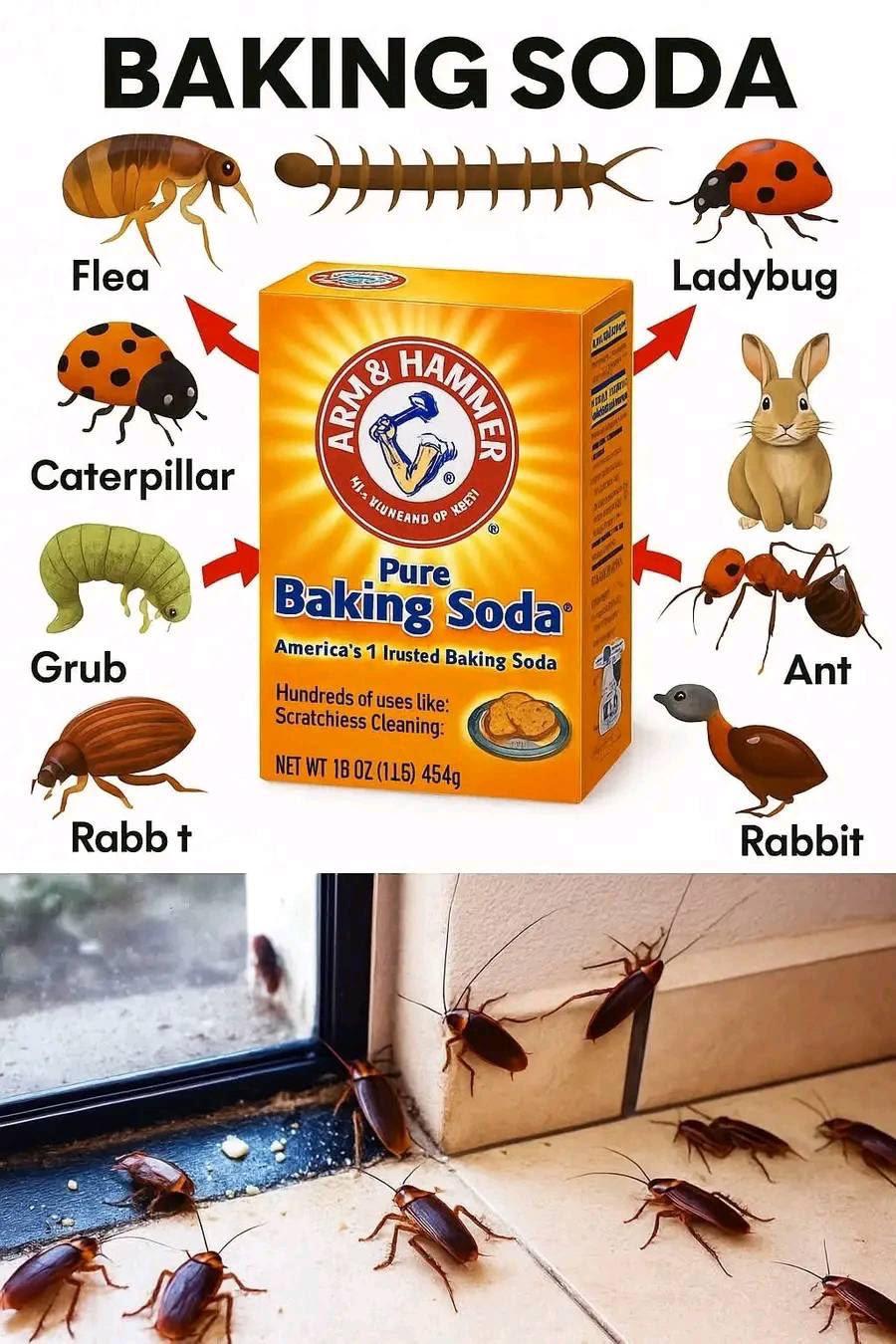🪳 1. Kill Cockroaches
What You Need:
- Baking soda
- Sugar
- Shallow dish
How to Use:
- Mix equal parts baking soda and sugar.
- Place the mixture in shallow dishes near cockroach hiding spots (e.g., under sinks, behind appliances).
- Sugar lures them; baking soda reacts with their digestive acids, causing fatal gas buildup.
Effectiveness: Works within 24–48 hours.
🐜 2. Repel Ants
What You Need:
- Baking soda
- Powdered sugar
How to Use:
- Combine baking soda and powdered sugar in a 1:1 ratio.
- Sprinkle along ant trails, entry points (windowsills, door cracks), or nests.
Why It Works: Sugar attracts ants; baking soda disrupts their pH balance, killing them.
🌿 3. Prevent Garden Fungus
What You Need:
- 1 tbsp baking soda
- 1 gallon (3.8 L) water
- Few drops dish soap
- Spray bottle
How to Use:
- Mix ingredients in a spray bottle. Shake well.
- Spray lightly on plant leaves weekly to prevent powdery mildew.
⚠️ Caution: Avoid spraying in direct sunlight (causes leaf burn). Test on a small area first.
🐭 4. Deter Mice
What You Need:
- Baking soda
- Sugar
- Flour
How to Use:
- Blend equal parts of all three ingredients.
- Place small amounts in corners, behind appliances, or near suspected nests.
Mechanism: Mice ingest the mix; baking soda releases carbon dioxide internally, deterring them.
🪰 5. Freshen Carpets & Repel Bugs
What You Need:
- Baking soda
- (Optional) 5–10 drops peppermint/lavender oil
How to Use:
- Sprinkle baking soda (and optional oil) liberally over carpets.
- Let sit for 15–20 minutes.
- Vacuum thoroughly.
Bonus: Eliminates odors and repels fleas, carpet beetles, and larvae.
⚠️ Safety Tips
- Keep mixtures away from children and pets.
- Avoid excessive application (e.g., large piles attract pests but won’t kill faster).
- Always test plant sprays on a single leaf before full application.
- Store baking soda in sealed containers to maintain potency.
✅ Eco-Friendly Impact
- Cost-Effective: Cheaper than commercial pesticides.
- Non-Toxic: Safe for humans, pets, and beneficial insects (e.g., bees).
- Sustainable: Reduces plastic waste from spray bottles and chemical runoff.
